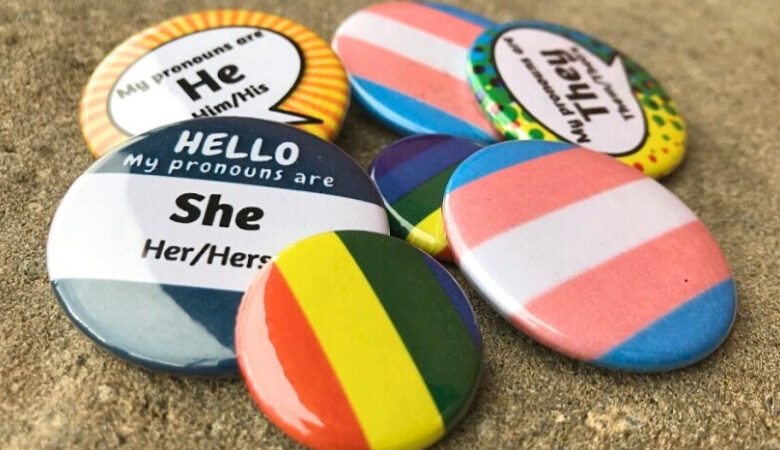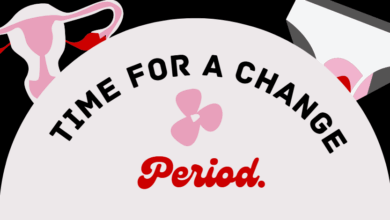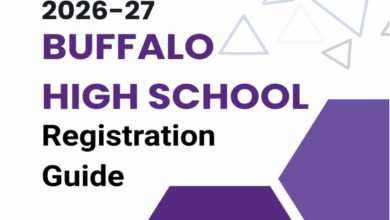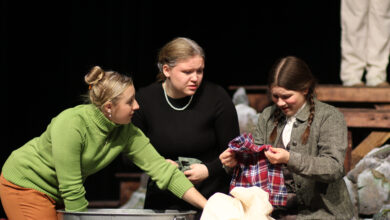
Gender identity is defined as “an individual’s personal sense of having a particular gender”. In most people, their gender identity correlates with their assigned sex at birth, those people are known as being cis-gender. However, there are some whose gender doesn’t match their assigned sex. These individuals can identify with a number of different identities, such as trans, nonbinary, and gender fluid. Pronouns are one of the main components of gender, whether an individual resonates more closely with she/her, he/him, they/them, or neo pronouns as part of their identity.
Walking the halls of Buffalo High School, you can often see students wearing LGBTQ+ flag accessories, pins, lanyards, etc. to either show support for the community or to show pride for their identities. Most LGBTQ+ students haven’t gotten a chance to speak about what it’s like being a non-cisgender person at this school.
Daniel
Q: What do you identify as?
A: “Generally, nonbinary, but if you want to get more specific, agender or the lack of any gender at all really.”
Q: What was the process of figuring out your gender identity?
A: “When I was around 10, I realized I didn’t mind which pronouns people used for me, and went by any for a while until I found other trans people sharing their experiences and identities and realized those resonated with me more than the gender I was assigned at birth.”
Q: When did you come out?
A: “I came out to my friends before my family, but September 2019 is when I came out to my friends, and around March 2020 is when I came out to my family.”
Q: How has your social life been affected by coming out?
A: “Not a lot, actually. All of my good friends and close family took it well and understand it at least enough to respect me being trans.”
Q: What are some ways the school district has been supportive?
A: “The biggest I think is having good teachers who respect their students. And also the gender neutral bathrooms are a blessing.”
Q: What are some ways the school district has been unsupportive?
A: “Not that I can think of really. The district itself has been pretty good all things considered.”
Q: How have students responded to your coming out?
A: “I haven’t come out to many students other than my friends, but most of them take it pretty well with the worst just asking some pretty weird questions.”
Q: What are some of the comments people have made, good or bad?
A: “I’ve actually been called a trans icon by a fellow trans student whereas the worse comments are just more invasive questions.”
Jay
Q: What do you identify as?
A: “I’ve changed my labels a lot, because I’m still trying to find myself. I originally came out as nonbinary, but now that it’s been a little more than a year and I’ve had more time to grow and learn as a person, I’ve realized the reason I came out as nonbinary in the first place was because I had internalized transphobia for myself, I was too scared to say I was trans because it’s kind of a ‘big thing’, and I thought nonbinary would be taken better by more people.”
Q: When did you come out?
A: “November, 2020.”
Q: How has your social life been affected by coming out?
A: “There’s a lot more people than I expected that support me and use my pronouns. There definitely are still some people that know that I’m trans but still use my deadname just to tick me off, I guess. People do it mostly to get under my skin, I’ve noticed that a lot.”
Q: What are some ways the school district has been supportive?
A: “I have had some support, it’s nice seeing teachers having a rainbow flag and seeing a teacher’s pronouns on their lanyards. Mrs. Lostetter especially has really made me feel comfortable in her classroom. She openly told people to knock it off if they were being homophobic. It’s the little things that you can do. There should still be more support from staff and students, however.”
Q: What are some ways the school district has been unsupportive?
A: “I think we should have a better health ‘unit’ or talk about human sexuality, because the one that we have right now just covers the bare minimum, and there’s definitely a lot more to learn about.”
“I hate having to go into the girls locker room, it feels so unwelcoming. As a trans person, not saying this is for everyone, but it feels very not nice if you don’t want a lot of people to know, you’re masculine presenting, and forced to go into the girls’ locker rooms just because you have boobs, it feels like you’ve basically been outed and all eyes are on you.”
Q: How have students responded to your coming out?
A: “It’s been a mixed bag of reactions, I would say there’s definitely been more good reactions than bad, but there still are some bad. There’s always a ‘am I gonna get hate-crimed?’ thought everyday. I definitely feel like here I’ll get hate-crimed more than other places.”
Q: What are some of the comments people have made, good or bad?
A: “I’ve been called a f*****, and I’ve definitely gotten some weird looks.”
You can find more information about gender identity and the LGBTQ+ community from these sources:
GLSEN. (2021). School Climate for LGBTQ Students in Minnesota (State Snapshot)
GoodRX Health. (2021). What Do Each of the Letters in LGBTQIA+ Acronym Stand For?
MPR News. (2021). A Guide to Understanding Gender Identity Terms





